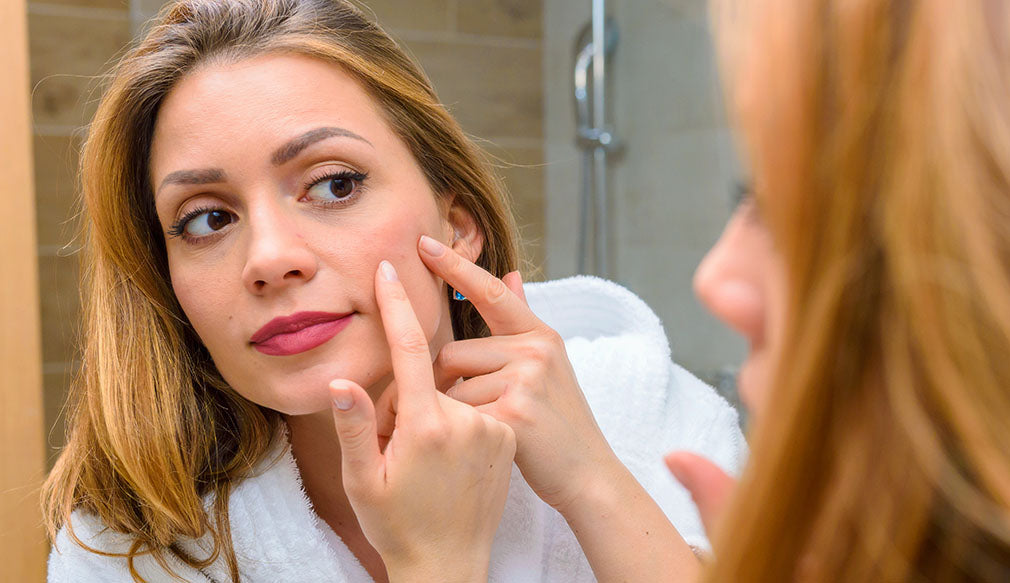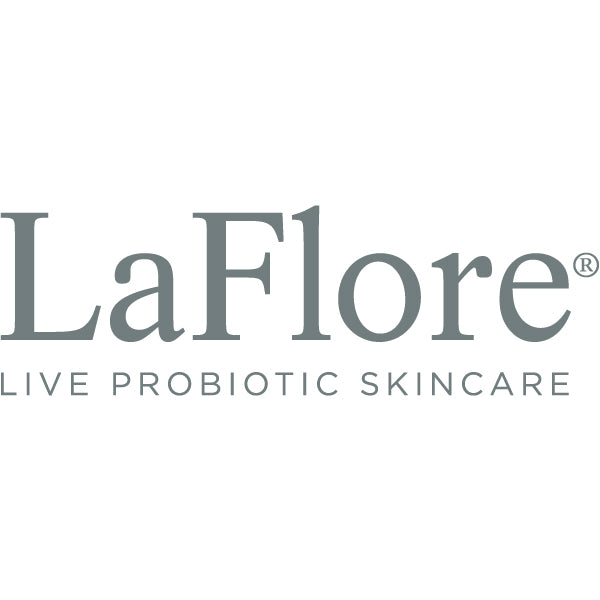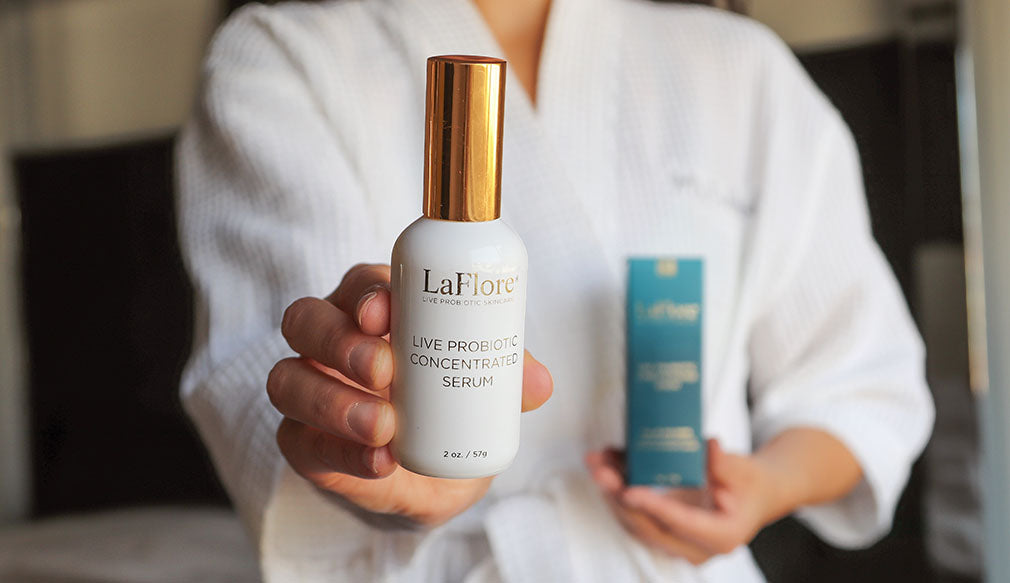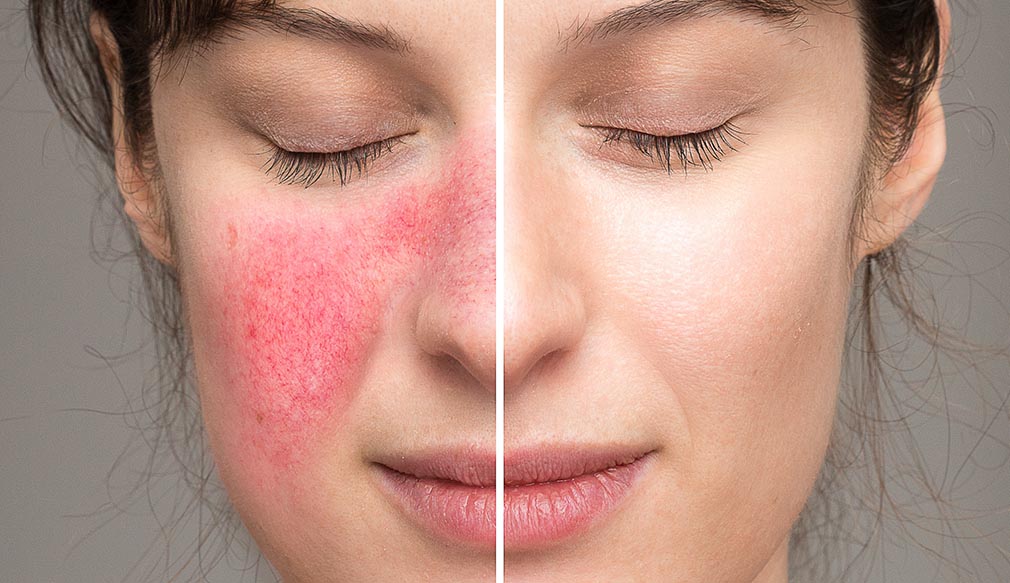
Topical Probiotics for Acne Management: Embracing Nature's Shield

Topical Probiotics for Acne Management: Embracing Nature's Shield
85% of people will struggle with acne vulgaris during their lifetime. It ranks as the second most common dermatological ailment after dermatitis. Contrary to its reputation as an insurmountable challenge, understanding the root causes and addressing them offers promising avenues for managing this condition naturally.
Acne is, fundamentally, an indication of an imbalanced skin microbiome. The skin's microflora, a delicate assembly of bacteria, plays a pivotal role in dictating the onset or absence of acne. It's imperative to appreciate that these microorganisms form an initial defense line against potentially harmful bacteria, including the culprits behind acne.
Identifying the Culprits Behind Acne
There are four factors that are thought to cause acne development and persistence.
- Sebum Overproduction: The sebaceous glands' excessive secretion of sebum, contributes to the development of acne lesions.
- Keratinocyte Proliferation: The overgrowth of keratinocytes within hair follicles, which serve as a protective barrier against environmental influences, can contribute to the formation of acne.
- Proliferation of Harmful Bacteria: Notably, the presence of bacterial strains such as Propionibacterium acnes, which do not typically inhabit the skin, can lead to acne emergence.
- Inflammatory Responses: The skin's microbiome can induce inflammation, further exacerbating acne, particularly when there is an overgrowth of P. acnes that stimulates an inflammatory response.
Additionally, acne has been associated with decreased diversity of different types of protective bacteria, including Cutibacterium acnes. Loss of diversity of these types of bacteria can cause the skin microbiome immune system to activate, causing inflammation and over-secretion of sebum - two main causes of acne.
The Connection Between Acne and the Skin Microbiome

Bieber, T., Bieber, S., Dréno, B., & Seité, S. (2015). THE SKIN MICROBIOME IN PATIENTS WITH ACNE VULGARIS.
This pie chart shows the composition of the skin microbiome of people with acne (left) and a healthy microbiome (right). In each graph, different colors represent different types of bacteria. There are apparent differences in the amount of each type of bacteria between healthy individuals and individuals with acne. The proportion of Actinobacteria - a protective bacterial strain that protects the microbiome by fighting off harmful bacteria - has dropped significantly in individuals with acne. Meanwhile, proportions of Proteobacteria and Firmicutes - harmful opportunistic pathogens that stimulate an immune response from the skin microbiome - have increased significantly.
Harnessing Topical Probiotics for Acne Treatment
Topical probiotics offer a promising solution for acne treatment due to their capacity to restore balance to the skin microbiome. By reintroducing beneficial bacterial strains that have been diminished in the presence of acne, these probiotics counteract strains like P. acnes responsible for breakouts. These beneficial bacteria not only hinder the growth of P. acnes but also generate antibacterial proteins, effectively eliminating P. acnes without compromising beneficial microflora.Clinical trials have shown that the application of probiotics to the skin enhances the skin's barrier function by augmenting antimicrobial properties. For instance, the application of Streptococcus thermophiles over seven days boosted ceramide production, which not only balances skin moisture levels but also exhibits direct antimicrobial activity against P. acnes. A two-month pilot study using ceramides resulted in an 89% reduction in acne pustules and decreased P. acnes counts.
Two Ways to Add LIVE Probiotic Skincare to Your Spa!
LaFlore Live Probiotic Concentrated Serum - If you try any LaFlore skincare products choose this one! This serum helps by adding more of the beneficial bacteria the skin needs to reduce redness, irritation, and inflammation. Think of it as a transdermal supplement as it works best if used daily. This is due to the fact that it strengthens the skin microbiome to correct and prevent future acne flare-ups by working with the skin microbiome to produce postbiotic metabolites like vitamin A, vitamin C, peptides, antioxidants, ceramides, and more. Available in professional and homecare sizes.
LaFlore Live Probiotic Concentrated Serum recently won the 2023 Aesthetican’s Choice Award for Favorite Probiotic Serum!
Microbiome Rest Package - This starter package includes all of the LaFlore professional products to perform the Microbiome Reset Facial in under 50 minutes. It accommodates 25 treatments with a revenue potential of $4,125 for a service priced at $165. It’s ideal for those looking to add a line to their spa that can help with those most difficult-to-treat clients including acne. It has everything the skin needs to mend and thrive naturally. The microbiome reset facial helps to reduce current acne symptoms like inflammation and redness while also providing a jumpstart to your client’s daily supplementation.
A Note About the Process:
When using topical LIVE probiotics like those found in our LIVE probiotic concentrated serum your client’s skin may purge. This part of their journey will be unique to them because everyone’s skin microbiome is different. Just remind them that if they think it is getting worse, it’s part of the skin’s process, and to not stop! Their healthy, happy skin is right around the corner. NOTE: Purge is not irritation, if your client experiences a burning sensation discontinue use.
Frequently Asked Questions (FAQs) - Treating Acne Naturally with Topical Probiotics
What is Acne vulgaris, and how common is it among adolescents and young adults?
Acne vulgaris is an inflammatory skin condition that affects approximately 85% of adolescents and young adults. It's the second most prevalent dermatological issue after dermatitis.
What factors are believed to cause the development and persistence of acne?
There are four main factors contributing to acne: sebum overproduction, keratinocyte proliferation, proliferation of harmful bacteria (such as Propionibacterium acnes), and inflammatory responses.
How does the skin microbiome play a role in the onset and absence of acne?
The skin's microflora, composed of delicate bacteria, significantly influences the presence or absence of acne. These microorganisms act as a primary defense against harmful bacteria, including those responsible for acne.
How is the imbalance of different types of bacteria associated with acne?
Decreased diversity of protective bacteria like Cutibacterium acnes leads to skin microbiome immune system activation, causing inflammation and excessive sebum secretion—both contributing to acne.
How can topical probiotics help in treating acne?
Topical probiotics offer a solution for acne treatment by restoring balance to the skin microbiome. These probiotics combat acne-causing strains like P. acnes while maintaining beneficial microflora.
What benefits do probiotics offer in terms of restoring balance to the skin microbiome?
Probiotics reintroduce beneficial bacterial strains, counteracting acne-causing strains and generating antibacterial proteins, leading to the elimination of P. acnes without harming beneficial microflora.
Could you elaborate on the benefits of LaFlore Live Probiotic Concentrated Serum for acne-prone skin?
LaFlore Live Probiotic Concentrated Serum adds beneficial bacteria to the skin, reducing redness, irritation, and inflammation. It strengthens the skin microbiome, preventing future acne by producing essential postbiotic metabolites.




